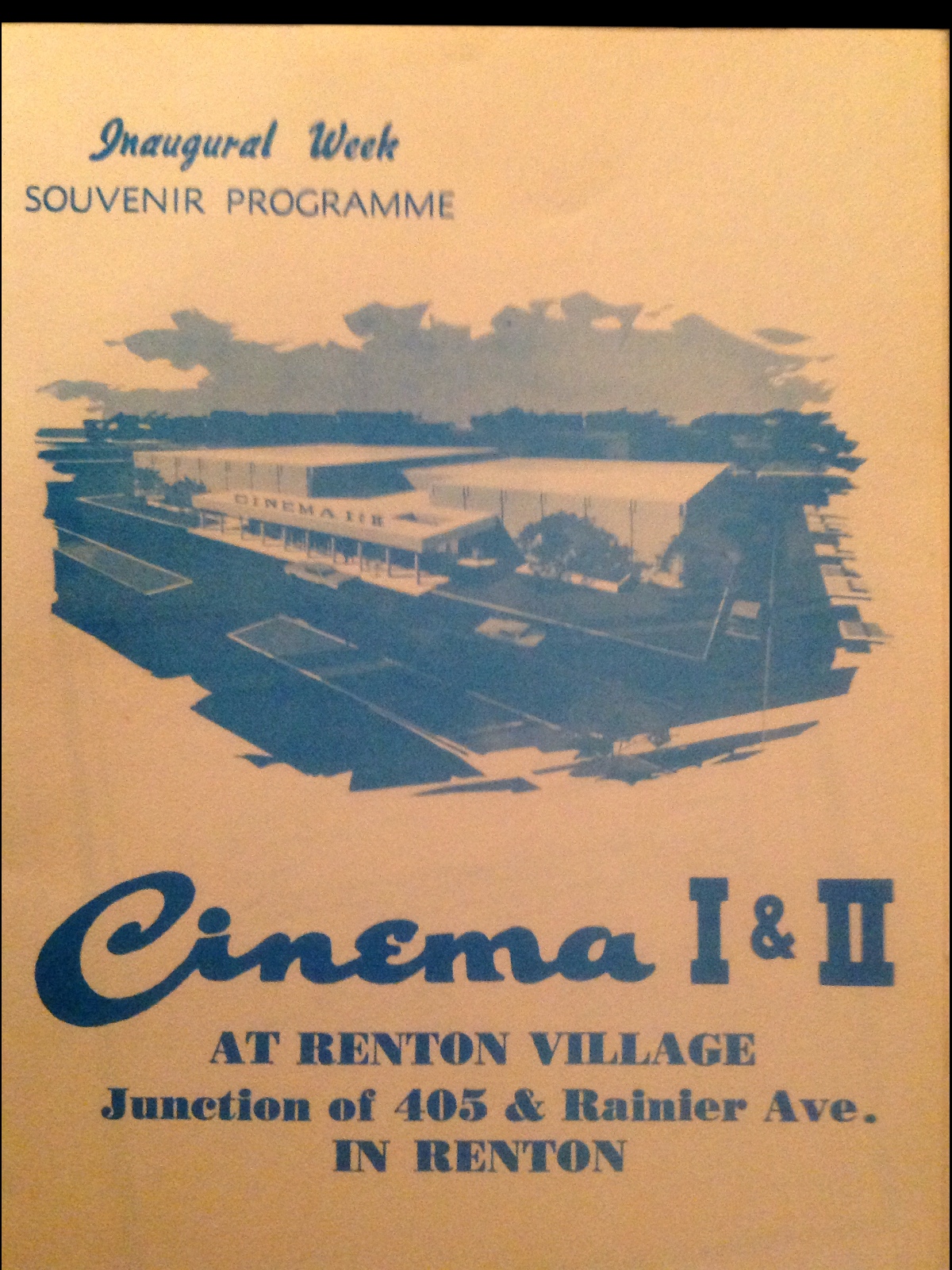
The New Cinema
As I stated previously, having my father on site was a real boon for his company, General Cinema Corporation. He kept an eye on things (like wrestling the safe through the completed lobby and into his office), and headed off potential problems before they happened, or became costly errors.
The cinema was built on the property of a shopping mall area called Renton Village just off Grady Way. The shopping complex wasn’t as big as Brockton, but well attended none the less. Right down the sidewalk from the theater was the Sheraton Renton Inn, a high rise hotel. At the far extremity away from the theater was Schumsky’s restaurant, with which my father horse-traded passes for meals. A Tradewell grocery store and an Ernst hardware were the main anchors.
The big circuit in the Seattle area was the Sterling Recreation Organization, and as such had the film market pretty well sewn up. But GCC being a national chain wasn’t without some influence. There were a few distributors that were very glad to see a new player in the area. In those days, Seattle had its own”Film Row.” The distributors kept offices down on Second Avenue. In the main we played Columbia, Universal, Buena Vista and MGM, which were headed up respectively by Al Boodman, Russ Brown, Homer Schmidt and Connie Carpou.
The Opening Films
That being said, the two opening bills for the Renton Cinemas were not auspicious. On one side was the feature Duffy from Columbia and on the other Secret Ceremony from Universal. I suspect no else in the area wanted to play them. Between the doormen and us ushers the code word for the latter was “Secret Garbage.”
Duffy, which starred James Coburn in the title role, is noteworthy in my estimation only tangentially, through a couple of the people associated with it. One was Donald Cammell, a rather unusual avant garde type who worked on the screenplay and would later co-direct with Nicholas Roeg the Mick Jagger film Performance. He pushed the envelope so far he shot and killed himself some say on purpose. The other was the director Robert Parrish, at probably the extreme opposite end of the spectrum. He was Old Hollywood, having started there as a child actor in the thirties (City Lights and the Our Gang comedies), and graduating to film editor (Body and Soul) and later director.
Not a thing did I know of any of this. Of all I was blissfully ignorant. Such information came as my interest in film grew. For the time being I probably had a feeling akin to Parrish’s old boss at Columbia – Harry Cohn, whose talented butt was his barometer to taste in film – if it wiggled in the seat – it was no good.


